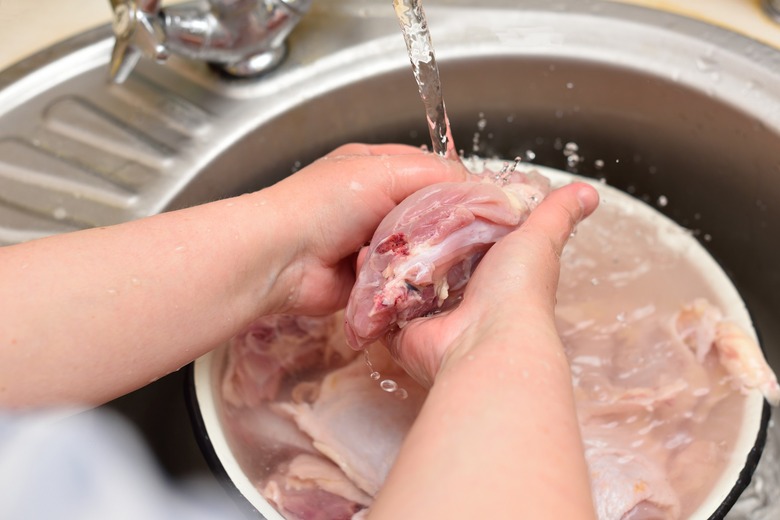Are You Supposed To Wash Raw Chicken?
You're about to prepare a nice home-cooked meal using fresh cuts of raw chicken. And if you follow cooking tips you learned from grandma, you may be washing your raw chicken before turning it into a delicious grilled dish or simple weeknight dinner. But running water over a slab of raw poultry is just about the worst thing you can do with your kitchen sink.
How to Thaw Chicken and Other Defrosting Food Questions, Answered
In fact, it's such a bad idea that the National Health Service (NHS) in Britain issued a public warning against the "sanitary" practice — claiming that "it can increase your risk of food poisoning from campylobacter bacteria."
Chicken is a popular protein. But raw chicken is often contaminated with foodborne bacteria such as salmonella or campylobacter bacteria.
When washing chicken, most people tend to rinse it in the sink under running water rather than submerging it in the sink or a container. The splashes from the water can spread chicken juices onto your kitchen surfaces such as the countertop and contaminate your utensils or other foods in the area. Droplets can disperse up to 50 centimeters in front of a sink and up to 70 centimeters on every side of a sink. If not properly handled, it can make the dirtiest parts of your home even filthier or lead to food poisoning.
The Centers for Disease Control and Prevention recommends not washing raw chicken. Making sure the meat is cooked thoroughly inside can help to prevent food poisoning due to eating raw or undercooked meat, so use a meat thermometer and make sure your chicken is cooked to 165 degrees.
The CDC also recommends washing your hands with warm soapy water before and after handling chicken. And once you're done cooking, be sure to deep-clean your kitchen area to prevent the spread of bacteria. While you're trying to figure out the best way to cook chicken, turkey and other meats, here are some bad cooking habits you need to stop now.
